The Broncos' Ring of Fame weekend for Gene Mingo, Rick Upchurch and Dan Reeves kicked off with Friday night's unveiling of pillars and a ceremonial dinner.








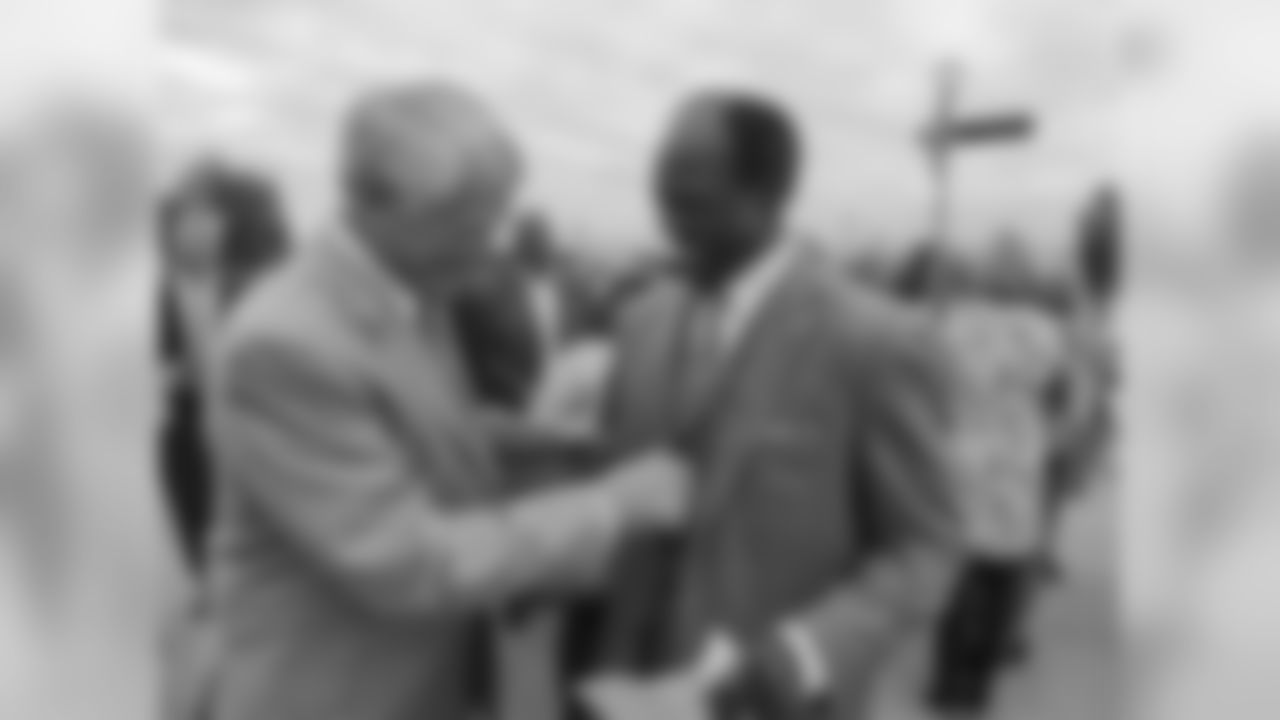



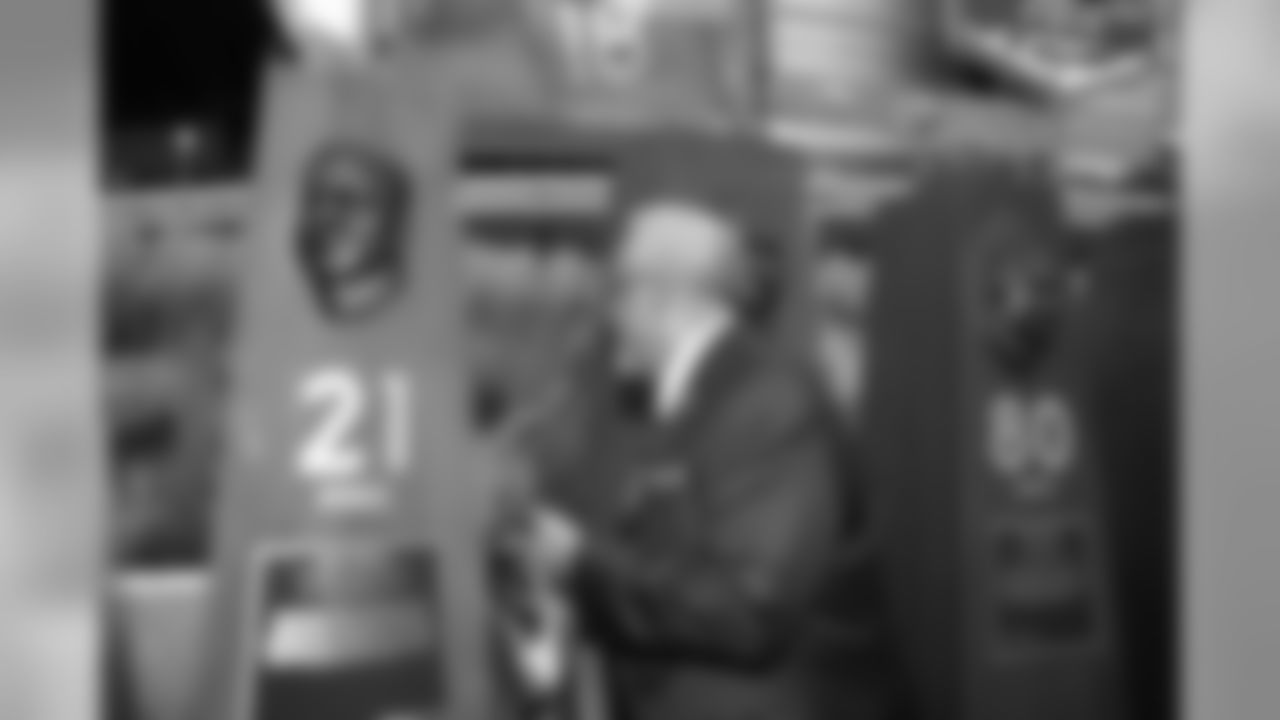
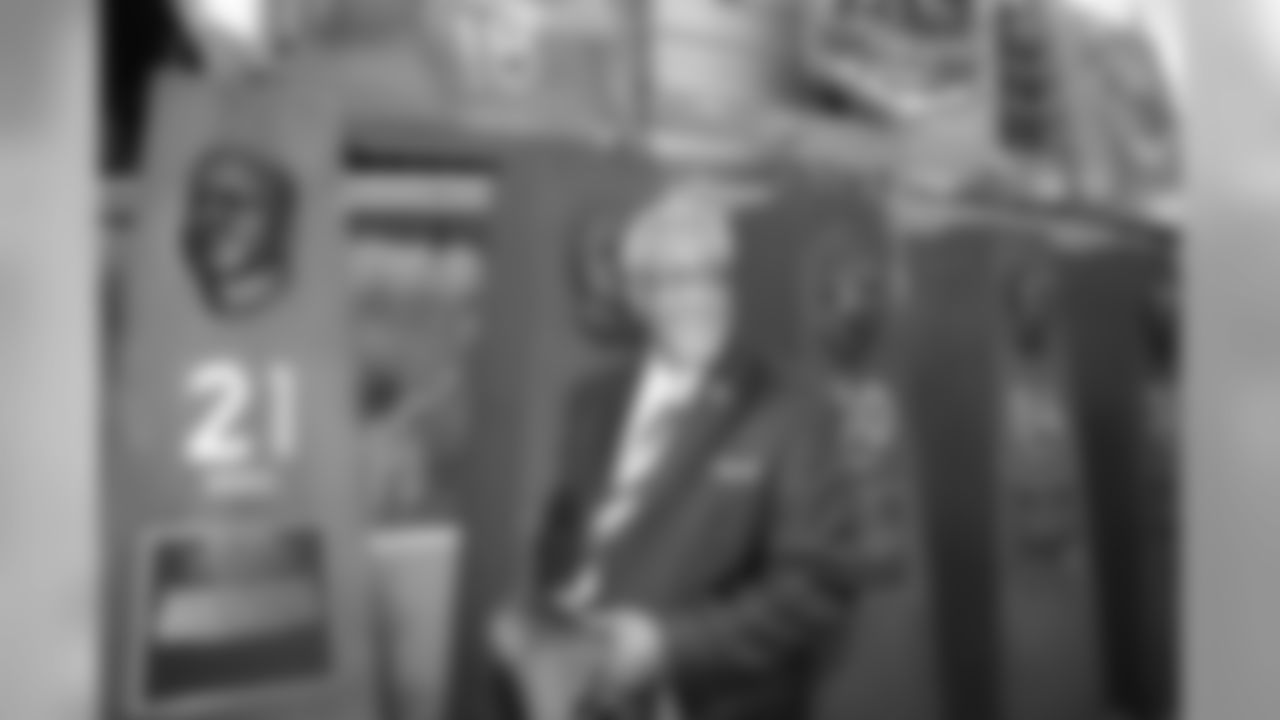


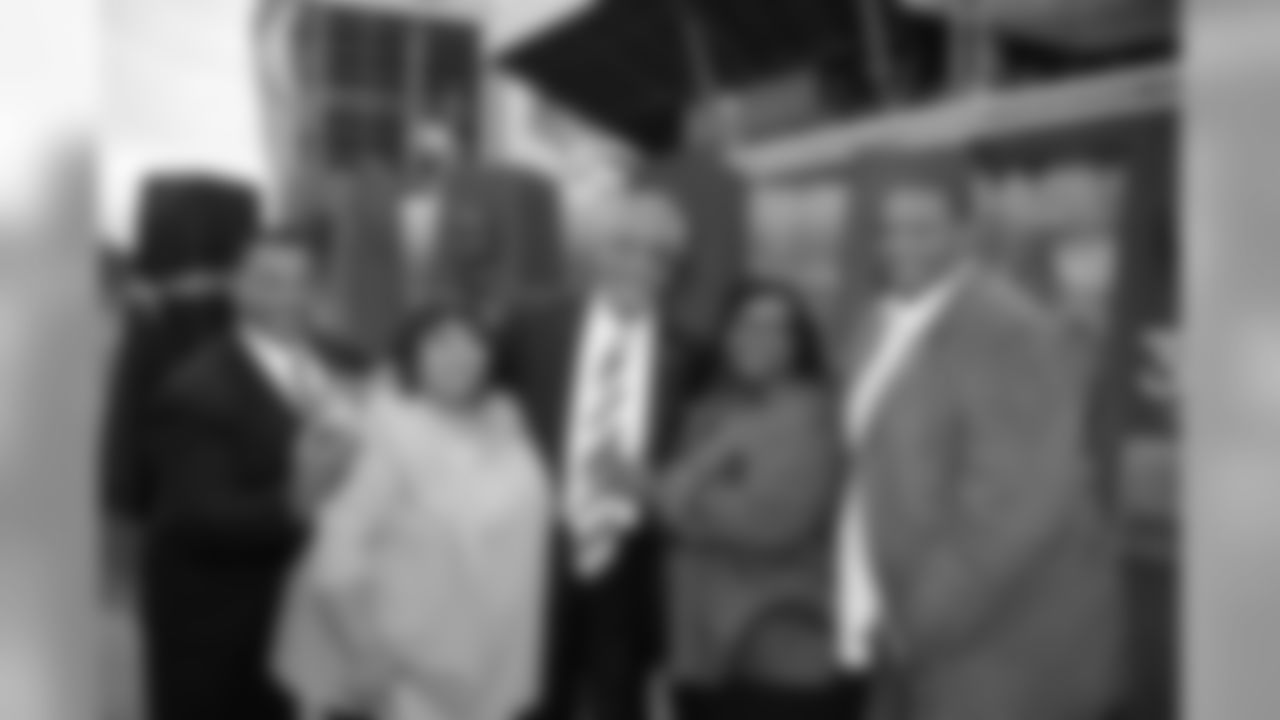

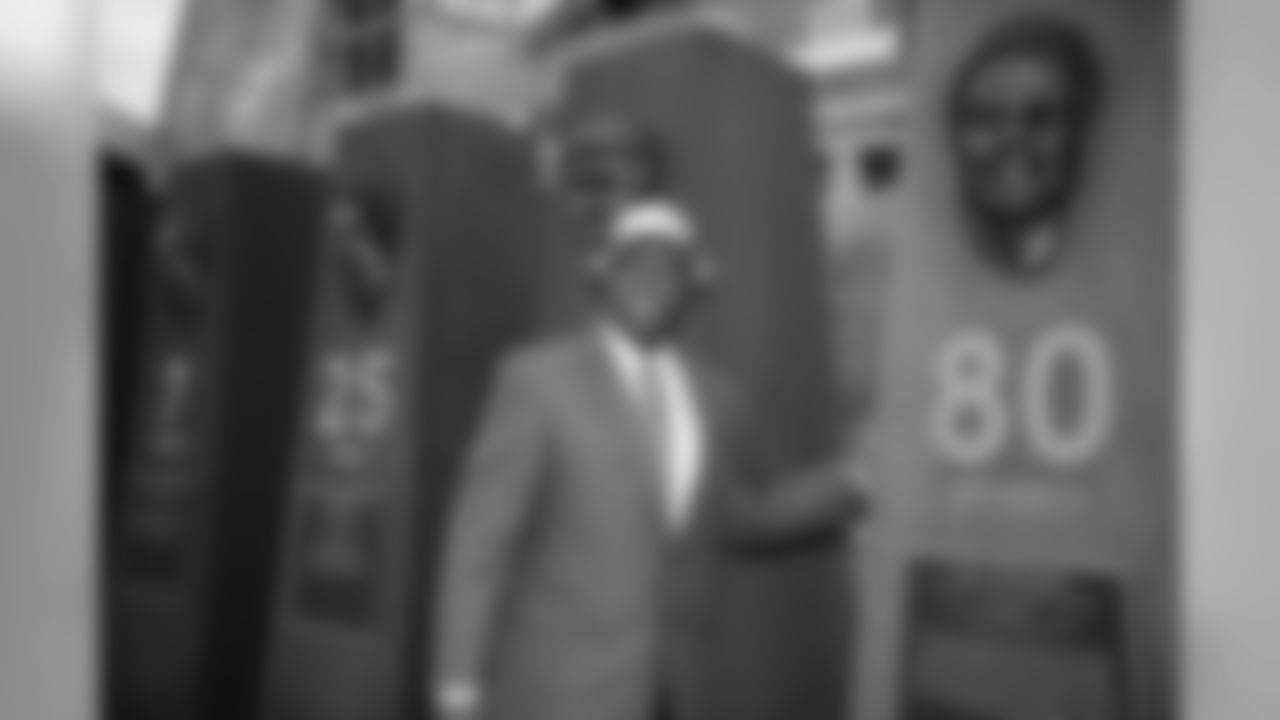
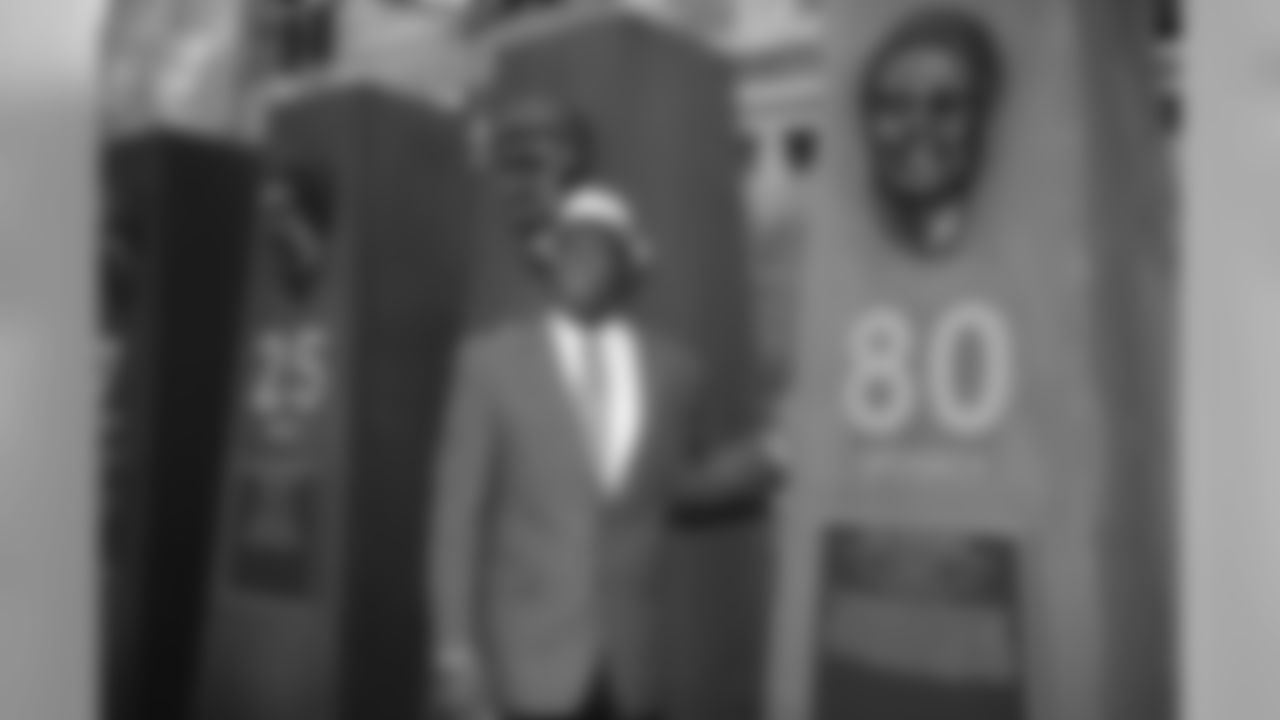
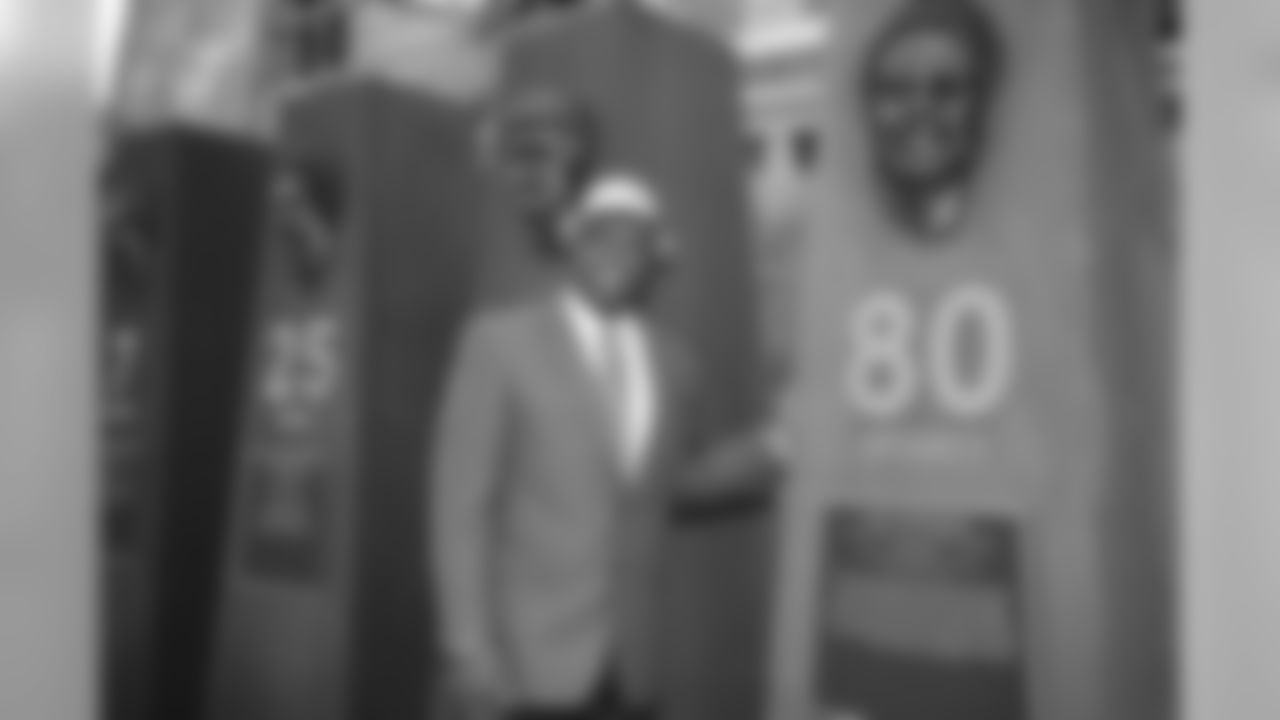


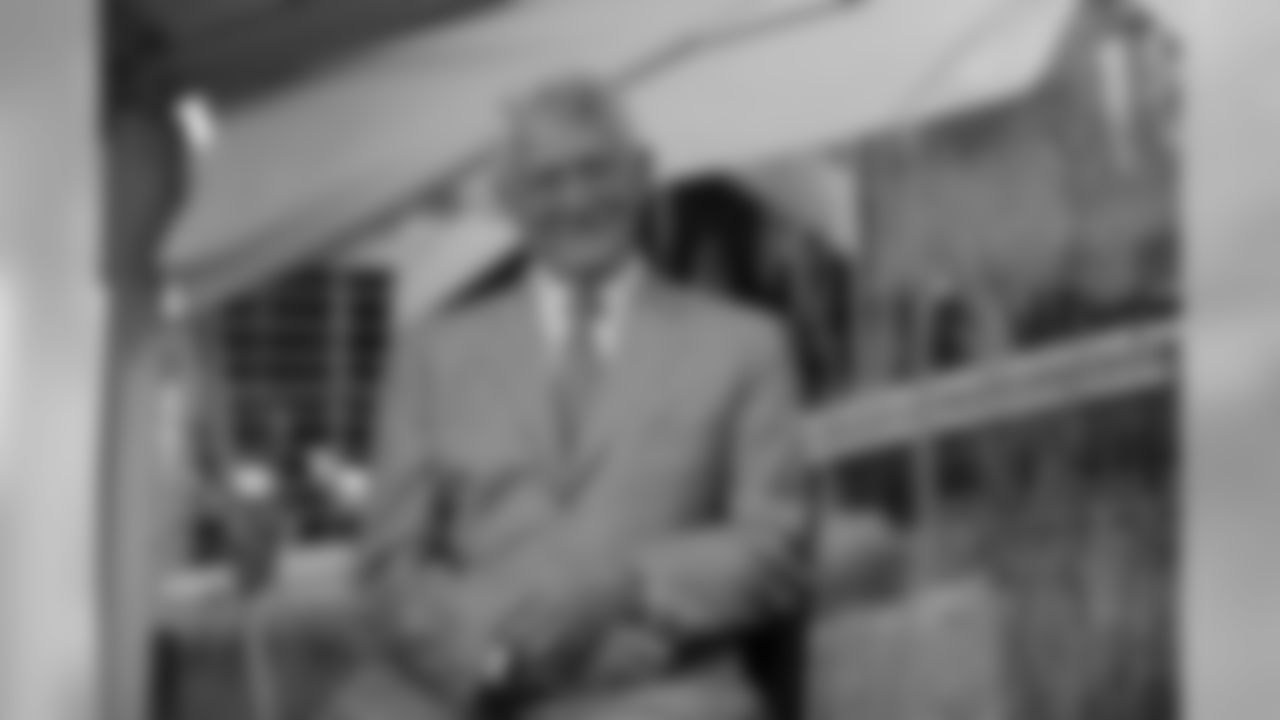




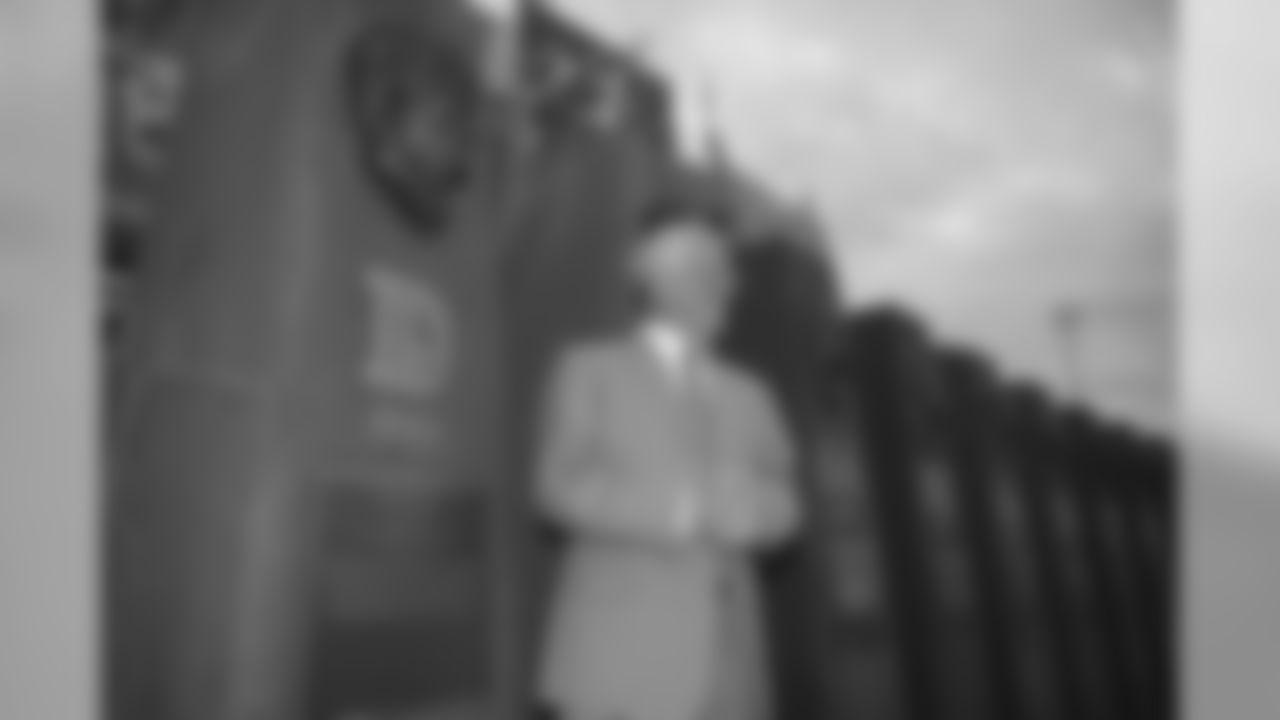

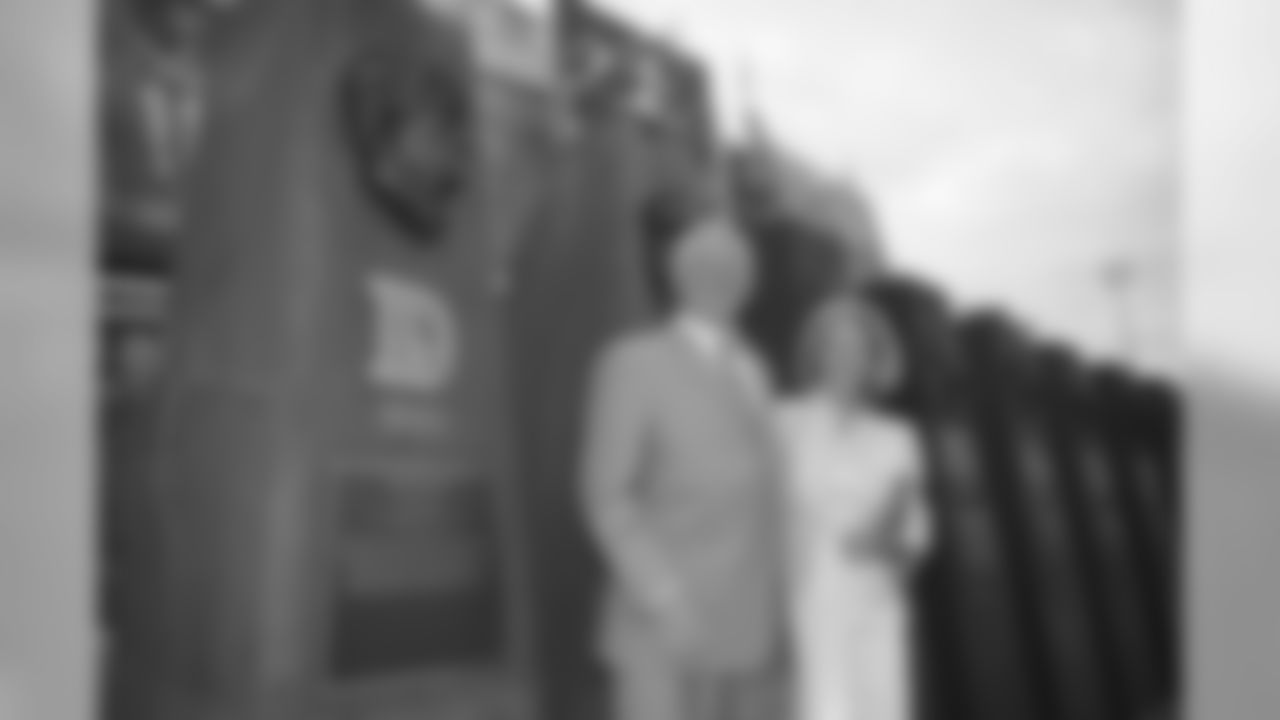

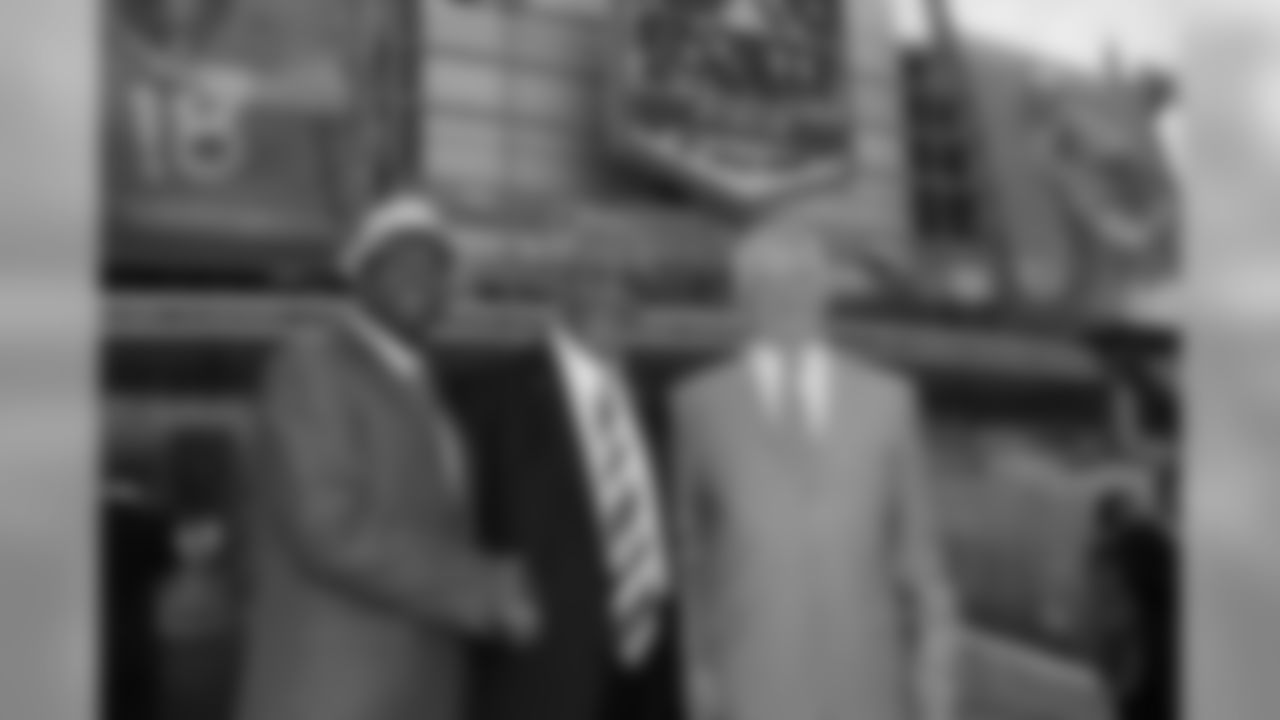

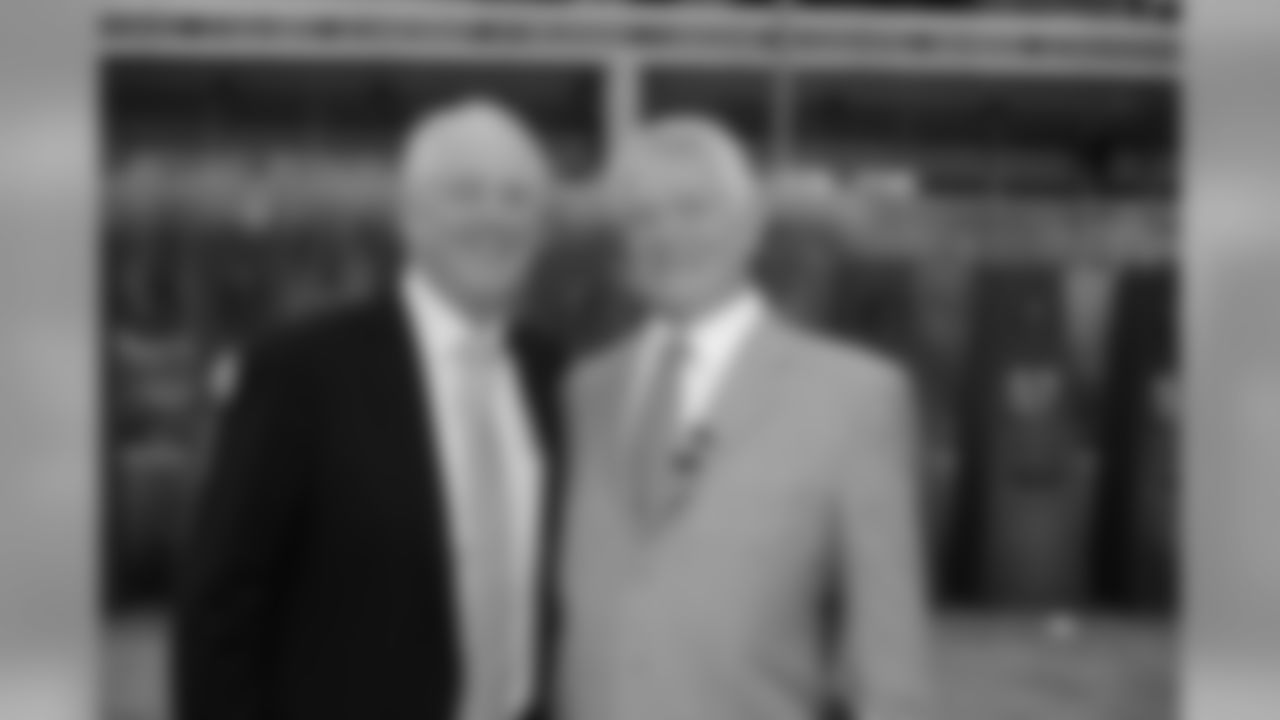



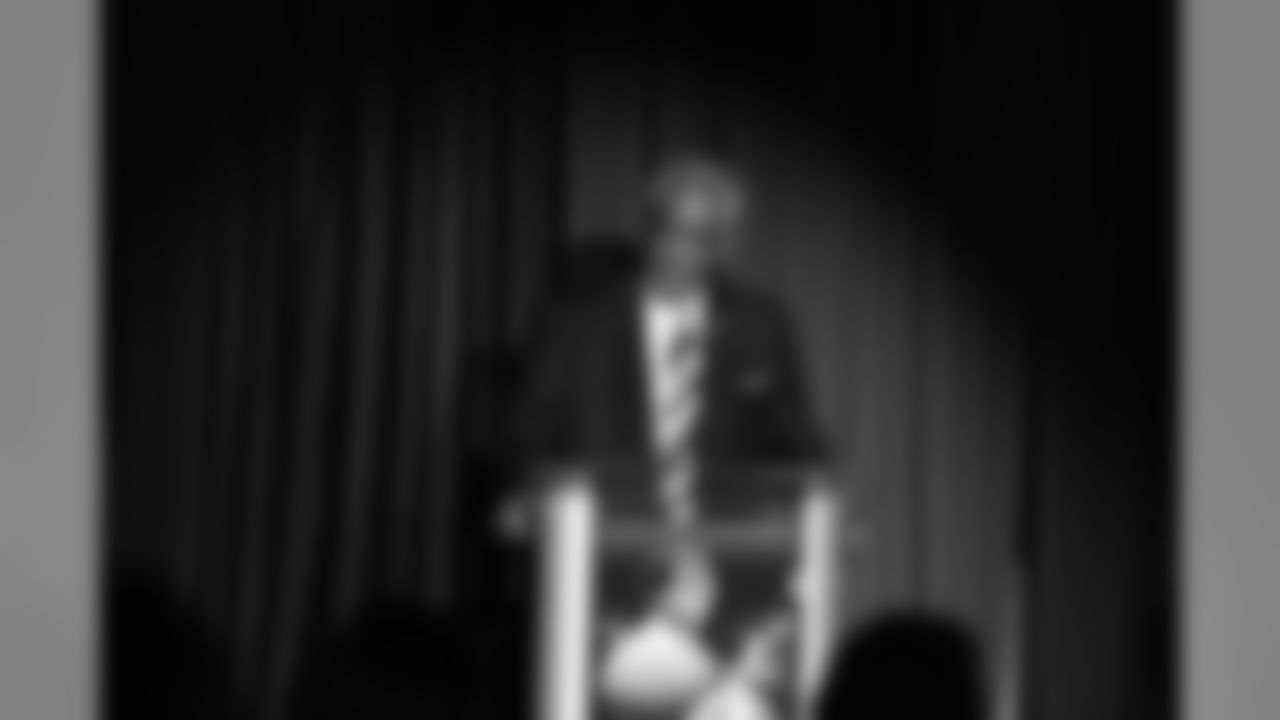




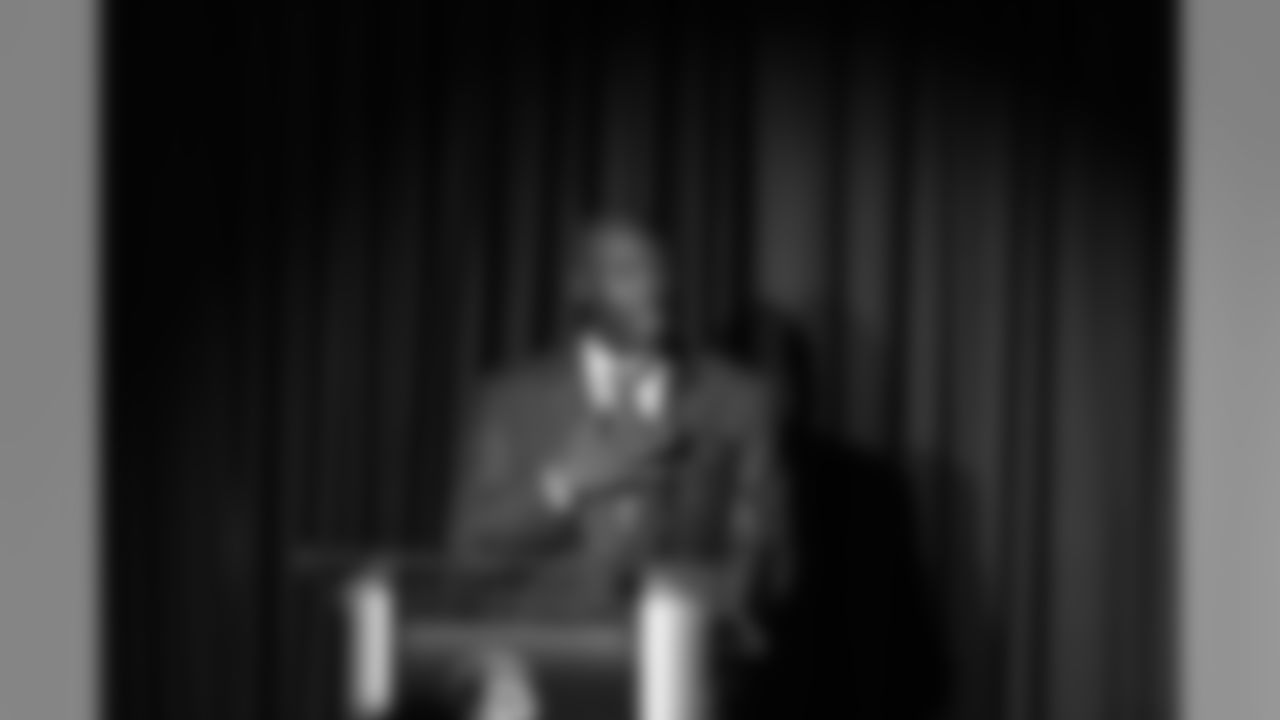






With 54 proud years behind them, the Broncos have plenty of history to reflect upon. Pillars honoring the most important members of Broncos history greet visitors from the Ring of Fame plaza outside the south end of the stadium, reminders inside the stadium's concourses hearken back to decades past, and the Ring of Fame members' names, numbers and years watch over the field from the Level 5 façade from the stadium's stands.
Created by owner Pat Bowlen in 1984, the Ring of Fame enshrines the most influential players, coaches and administrators in team history. This year, the Broncos inducted three new members, the most inductees in one class since 1988. Halfback and kicker Gene Mingo, wide receiver Rick Upchurch and Head Coach Dan Reeves will raise the Ring of Fame's total to 27 members.
Gene Mingo's importance to the Broncos dates back to their first year and to their first game.
In a narrow 13-point win on Sept. 9, 1960, Mingo gave the Broncos the game-winning score on the American Football League's first punt return for a touchdown on his only punt return of the day, a 76-yard scamper. He would also contribute 66 yards on the ground on eight rushes, a kick return for 24 yards, and an extra point.
Mingo's versatility as a kicker, halfback and kick returner is something that isn't seen in the NFL anymore. It's that same versatility that eventually sent him into the annals of Broncos history ranking seventh in the team's overall scoring, with 408 total points, placing him just ahead of Terrell Davis. Further, his 82-yard touchdown run over 50 years ago still stands as the longest run in Broncos history.
It wasn't just on the field that Mingo impacted the Broncos and football history, but off it as well. As the first African-American kicker in professional football history, Mingo holds a special honor.
"We had to work for where we are today, and I'm proud of being the first black field goal kicker," Mingo said. It wasn't easy, though. At a time during boiling Civil Rights action, Mingo and other black players would have to room separately on the road, unable to stay with his teammates at segregated hotels and face putrid hate speech from opposing fans.
But he had the support of fans and teammates, which to this day is a source of pride for him.
Though just being remembered by his fans who might recognize him when he's out and about is often enough for him, Mingo knows his induction to the Ring of Fame is a long time coming, for both his history as a pioneer and as a terrific player.
Rick Upchurch's legacy, like when he returned kicks, is hard to touch.
By the time his NFL career came to a close, Upchurch had tied the NFL record for career punt returns for a touchdown with eight and he had set the league's record for punt return yards for a career. Those numbers look even more untouchable when narrowing it down just to Broncos' history.
With great speed and ability to change direction thanks to an incredible lateral agility, Upchurch put his name into the record books and has already earned plenty of accolades, including four Pro Bowl nods and three First-Team All-Pro spots. His impressive career was rewarded with a placement on the Pro Football Hall of Fame's NFL's All-Decade First Team as a kick returner for the 1970's and on the second team for the 1980's.
Though returning kicks was Upchurch's calling card, he also made a name as a receiver. His 4,369 career receiving yards ranks 10th in Broncos history. He averaged 16.4 yards per reception, and had 24 total receiving touchdowns during his nine-year NFL career.
A team player, Upchurch's contributions helped the Broncos reach some terrific heights, including a Super Bowl appearance, two conference championship game appearances and one other playoff trip.
His illustrious career was hinted at in his first game, a comeback 37-33 win against the Kansas City Chiefs, but it was a rough start.
"The first time I touched the ball, I got knocked out," Upchurch said. "As a matter of fact, they cracked my helmet and I had a big knot over my eye, my lip was all jacked up. And they said 'Welcome to the NFL, little guy.'"
He would then be thrust into a starting wide receiver spot during the game after Haven Moses got injured. Upchurch responded marvelously, setting a team record for combined yardage (receiving, rushing and returns) by a rookie with 284 yards, and he tacked on two touchdowns just for good measure.
"I don't think anybody to this day has had that type of a game initially in their debut game. That one really started my career out."
Among individual performances, that one stood out the most to Upchurch. But he was happiest when the team came together to succeed, culminating in reaching the 1977 Super Bowl.
"As a third-year ball player coming out and having that opportunity to play in the Super Bowl, yeah it certainly was the cherry on the sundae. It's the best thing that can ever happen with anybody, to be able to look back and say, 'Man, we accomplished something.'"
"It's like your first date, your first girlfriend," Dan Reeves said. "Your first is always special, and for that to be my first head coaching job and to be able to go to a place like Denver that had so much."
Beating the defending Super Bowl champion Raiders in his first game as head coach, Reeves had a swell first date.
Denver was a swell first girlfriend, too. With a personality noted for an aggressive competitive fire, Reeves compiled a 110-73-1 record with the Broncos, helping them reach three Super Bowls in a total of six trips to the playoffs.
Having so much success has given him plenty of wisdom, and the one thing he gets across more than anything to those who ask about his coaching career is how much a comprehensive team process means.
"There's so much that goes into it," Reeves said. "First of all, you got to have great players. We had great players, did a good job through our scouting department, had a great coaching staff, tremendous offseason program. [Strength and conditioning coach] Al Miller was probably one of the best putting together the offseason program. The guys worked hard. We just had some great players. It starts with great ownership, too. Pat [Bowlen] did a super job of getting us whatever we needed."
And with Bowlen stepping down from daily operations, Reeves said the timing as he enters the Ring of Fame means all the more to him.
At the time that Reeves was hired, the owner was Edgar Kaiser Jr., who would then sell the team to Bowlen.
"When you have a new ownership, you figure if they're going to pay that kind of money, they have somebody in mind that he wants to hire and so forth," Reeves said. He added, "There was never anything I asked for that I thought was important for us to have, whether it be hiring coaches or whether it be facilities, Pat was always willing to step up and do whatever we needed. […]There couldn't have been a better owner to work for, than Pat Bowlen."
Honored to be inducted into the Ring of Fame, Reeves was delighted to hear the news when they told him the news.
"You spend 39 years in the National Football League, it's just amazing to have something like this. This is, by far, the biggest honor that I've had bestowed upon me."






